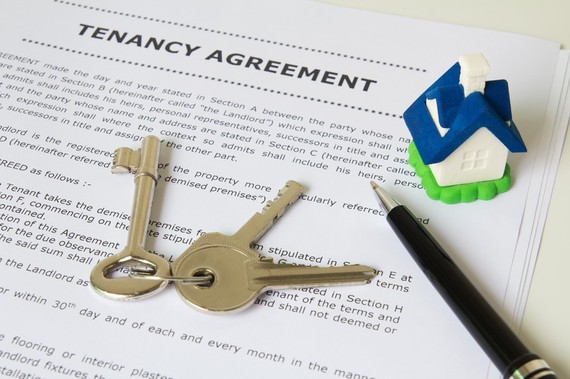Go to Google and search on "free lease agreement template," and you'll get thousands of results. It's not hard at all to find a lease you can download and use for free. What is much harder is making sure first that all of the terms in it are legal in your state, and also that you've covered your interests adequately as a landlord.
Let's look at a dozen things you may or may not find in a free lease template, but make sure that you handle them according to your state's laws.
1.Rules violations that result in fees or penalty costs and how much: you don't want to try to fine a tenant or withhold money from a deposit for violating some rule unless you have their signature on a lease that clearly tells them what the rules and fines are.
2.Require renters insurance: this is really cheap insurance that covers the belongings of the tenant. Should, and you hope not, a fire or other catastrophe cause tenant possessions to be damaged or destroyed, you want them covered so they're not claiming against your insurance.
3.Included appliances: this may seem overkill, but you don't want to find something like a garbage disposal missing when it doesn't show up as being a part of the unit in the first place. Also, it's even better if you have unit model and serial numbers by unit, as it has happened that nice appliances were swapped out for not so nice items. You would think that this is something you'd notice on a walk-through, but when you own lots of units, similar looking appliances much older or of lesser value have been known to be swapped into the unit.
4.When and why you can enter the unit: this is going to be somewhat controlled by state landlord/tenant laws. In most states you're required to give written notice, usually 24 or 48 hours, unless you suspect damage or an emergency situation. This is one you need to be very clear about, and you need to get into units every so often to make sure they're not being damaged in major ways. A good approach is to say that you'll be making a scheduled visit to change batteries in smoke detectors every 4 months or something like that. They'll not complain if you're keeping them safe.
5.Furnace and air conditioning filter replacement: this is another case of probably needing to enter the unit. You can require that tenants change the filters if you provide them, but you can't be sure they are doing it properly or at all. You're far better off to do this with staff.
6.Costs and terms if lease is broken: sometimes even good tenants can have a job problem or other valid reason for needing to move. In fact, if they lose their job, you would probably rather let them out of the lease instead of having to evict them for non-payment of rent months later. Clearly state the penalties for breaking the lease and have them initial next to this section.
7.Home Office rules: more and more people are freelancing or working from home every day due to technology and the Internet. You don't want to tell them they can't, but you need to set the rules for whether they can have customers/clients visiting or not, and where they can park if they do; as well as limit that activity.
8.Pet rules and fees: allowing pets will generally result in lower vacancy rates, but you need clear rules as to size, type, unwanted breeds (dogs), where they can be walked, cleaning up after them, etc. People dote on their pets, but you must make sure they're not treating them better than the landlord!
9.Abandonment and possessions: yes, sometimes a tenant will just disappear and never return, leaving personal items in the unit. Sometimes they just didn't want them anymore and are using you as their disposal person. However, your lease needs to be clear as to how long a unit can be unoccupied before you will consider it abandoned and personal belongings sold or donated.
10.Damages vs "wear and tear:" really be clear and detailed about this, as you'll be withholding deposit money to repair "damages," while normal wear and tear is considered just that; normal. Then create a detailed walk-through checklist with a move-in and a move-out check column. Do a careful walk-through with the tenant at move-in, take photos and get them to check satisfactory condition. Do it again on move-out and note and document damages with photos.
There are other items you may want or need in a lease, and some will be location specific, such as snow removal, etc. Get your lease blessed by an attorney for the best protection of your interests.

